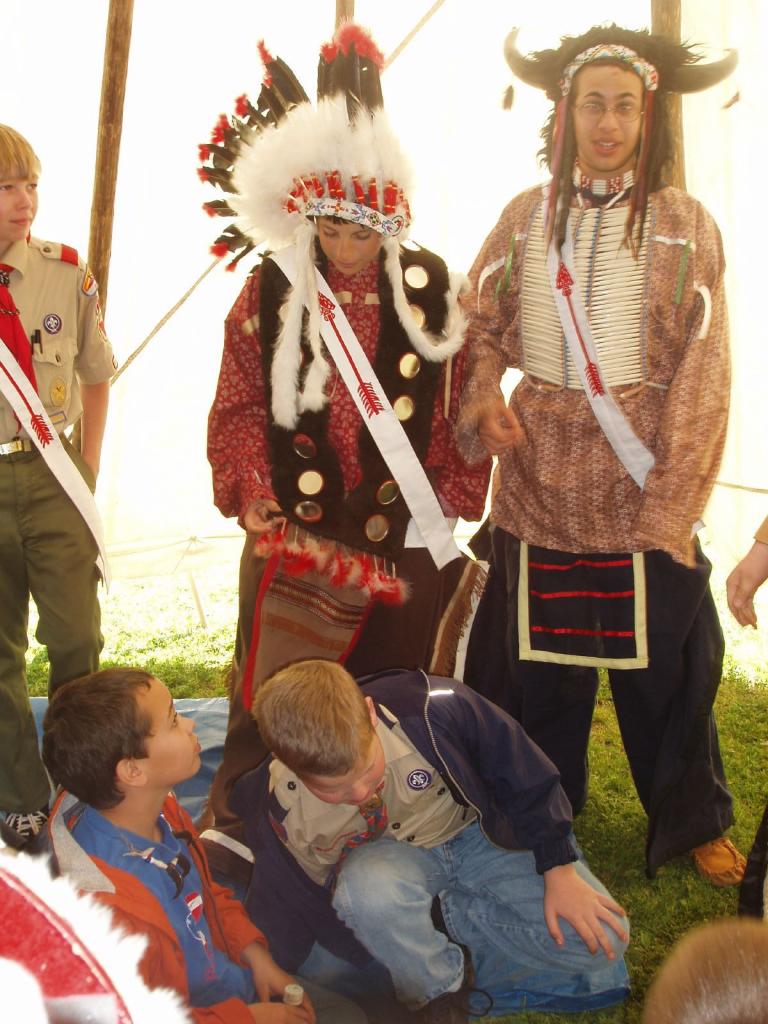So I’m in the middle of reading and note-taking on a Harvard report on housing for older adults, and aiming at another go at trying to convince my parents that maybe, just maybe, living in a “senior residence” with skywalk-access to recreation and fitness activities is a better alternative to sitting around watching TV all day, but I thought I’d take a break with a little piece on “cultural appropriation,” inspired by a snippet in the National Review on students at the University of Minnesota, who were subjected to re-education for the sin of cultural appropriation when they hosted a party with a “fiesta” them, wearing ponchos and sombreros.
What is cultural appropriation, you ask? Let’s cite my top google hit, racerelations.about.com:
Taking intellectual property, traditional knowledge, cultural expressions, or artifacts from someone else’s culture without permission. This can include unauthorized use of another culture’s dance, dress, music, language, folklore, cuisine, traditional medicine, religious symbols, etc. It’s most likely to be harmful when the source community is a minority group that has been oppressed or exploited in other ways or when the object of appropriation is particularly sensitive, e.g. sacred objects.
Now, of course, “cultural appropriation” happens all the time when someone decides to dress as a “naughty nun” at Halloween, but it’s clear that the term is most often used when a person of European heritage “uses” an African, Arabic, Asian, or minority American “culture.” And it’s all a bit silly — according to this line of thinking, rock and roll was an unjust act of appropriation. And who, after all, is authorized to give “permission”?
But I’m not even going to go into the particulars of the silliness, nor try to turn the tables and say that the Chinese have no right to play Beethoven, nor may Africans read Shakespeare.
I just want to play a different game: what forms of celebration, of dance and music, of culture, would secure the approval of the anti-cultural-appropriation activists?
A bland, themeless party, presumably — a few balloons and streamers and ordinary pop music (Taylor Swift, not hip hop) is probably OK, but that gets a bit boring. It’s hard to come up with themes that represent “American” culture without getting into trouble for other reasons — even a “pioneer” theme, with “little house” dresses, would probably be insensitive due to the fact that those pioneers were moving into former Indian territory. Couldja do a Square Dance theme? That’s pretty American. Country music would probably be authentically American, thought it has other strikes against it, but maybe if you go back a bit further in time, to something more along the lines of “roots music,” you’d be OK, though it’s probably harder to dance to.
Or do you have to back up a bit further and say that, since most (white or biracial) Americans have German ancestry, an Oktoberfest theme is probably OK (and, besides, just like the United States took over German companies in the US during World War I, such as Merck and Bayer, they’ve likewise lost the “right” to their cultural “trademarks”, anyway). Lederhosen and dirndls and oompah bands are always popular, and Germans are always willing to share.
An Irish theme is probably also OK, given the prevalence of Irish ancestry. Corned beef and celtic music and the women crimping their hair like those Irish dancers.
Or maybe you have to back up, and go with a Medieval theme — after all, there aren’t any knights and fair ladies around to complain.
What about a toga party? Is it too insulting to Italians, or have they lost the trademark rights by the long passage of time since anyone last wore a toga?
Anyway, I’m running out of momentum here. You can take it from here in the comments.












